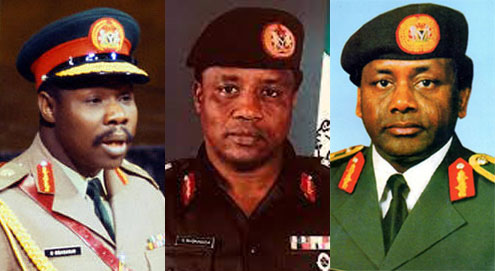
Milcah Tanimu
The following are excerpts from the TELL magazine’s edition dated September 7, 1998: “Between these two men, the alleged plotters endured a level of torture considered heinous even by military standards. For example, Fadile, Gwadabe, Colonel Gabriel Ajayi, Major Akinloye Akinyemi, and over 20 other implicated military officers were hung upside down for 14 consecutive days in an excessive display of enthusiasm to please the higher authorities. Gwadabe, the alleged ‘ringleader,’ was coerced into a scripted confession. When he resisted, his fingernails were torn out. Despite the pain, he remained stoic, refusing to cry out, until he eventually passed out. After revival with icy water, his kneecaps were shattered in an attempt to disable him.”
“To manipulate Bello-Fadile into falsely implicating Obasanjo and Yar’Adua, he endured unbearable torture. He later confided in fellow inmates that he had considered suicide were it not for his perpetually bound hands.”
“Had this plan succeeded, with Diya implicating Abubakar, Tokoya accusing Akhigbe, and Bako pointing at Bamaiyi, all six—Diya, Abubakar, Akhigbe, Olanrewaju, Adisa, and Bamaiyi—would have faced death sentences, executed within 24 hours of their conviction.”
During Nigeria’s military interregnums, life was harsh and fleeting.
Military rule turned Nigeria’s Civil/Public Service into a centralized and autocratic structure, eroding the federal system initially agreed upon after conferences in Ibadan (1950), London (1953), and Lagos (1954). These agreements brought accelerated development in the North, West, and East. Nigeria flourished until military intervention led to a unitary regime, extinguishing the federal structure, and undermining the robust and initiative-driven Civil Service. Today’s Nigeria is more like a Unitary Republic, with all roads leading to Abuja. This centralized approach contradicts peaceful coexistence in a diverse, vast nation. The echoes of multiple coups have yet to fade, leaving Nigeria in a state of political instability.
In 2018, Senator Ike Ekweremadu made a concerning statement on the Senate floor, suggesting that the military could seize power again. Such sentiments reveal ignorance of the military’s role, institutional forgetfulness, and disregard for Nigeria’s path to democracy. Military coups often arise from public frustration, as officers seize power to satisfy their ambitions. Ekweremadu and others should study “Out of the Shadows: Exile and the Struggle for Freedom & Democracy in Nigeria” by Dr. Kayode Fayemi to gain perspective.
With hindsight, Nigerians would prefer a flawed civilian government over a military one. The scars of military regimes may persist for decades, as destruction is easier than reconstruction. The military’s past actions even triggered the Civil War, costing millions of lives and causing lasting socio-economic turmoil. Accepting circumstances that could lead to similar tragedies is irrational.
Whether good or bad, civilian governance replaced military rule in Nigeria. The military isn’t the guardian of democracy; that role now belongs to the press according to Section 22 of the Nigerian Constitution. The military isn’t a political party and shouldn’t assume such a role. If a ruling political party underperforms, let another party take its place through elections—a norm in civilized societies. To grant the military a role in politics, it must be constitutional. The idea of a handful of armed officers announcing the suspension of the constitution is an affront to intelligence. If the military’s role were to be embraced, every citizen could carry arms.
Teachers teach, doctors heal, and farmers cultivate. Similarly, the armed forces must protect against external aggression and internal rebellion, as stated by the constitution and the Armed Forces Act. No profession is superior, and institutions should fulfill their constitutional duties. Soldiers follow orders, but they shouldn’t be shielded from disobeying treasonable commands. Laws should protect junior officers who defy such orders and allow them to arrest superiors issuing such commands.
Though some incidents challenge this assertion, the current crop of officers appears committed to professionalism and obeying civil authorities. Nigeria’s armed forces have a legacy of discipline, professionalism, and subservience to civilians. While politicians have misused soldiers for personal gains, President and Commander-in-Chief of the Armed Forces has taken a different route. These officers seem ready to contribute positively to the nation’s development and to maintain their pride.
As Irish politician John Curran said, “The condition upon which God hath given liberty to man is eternal vigilance.” Nigerians must vigilantly safeguard their inalienable rights, guaranteed by the constitution.
